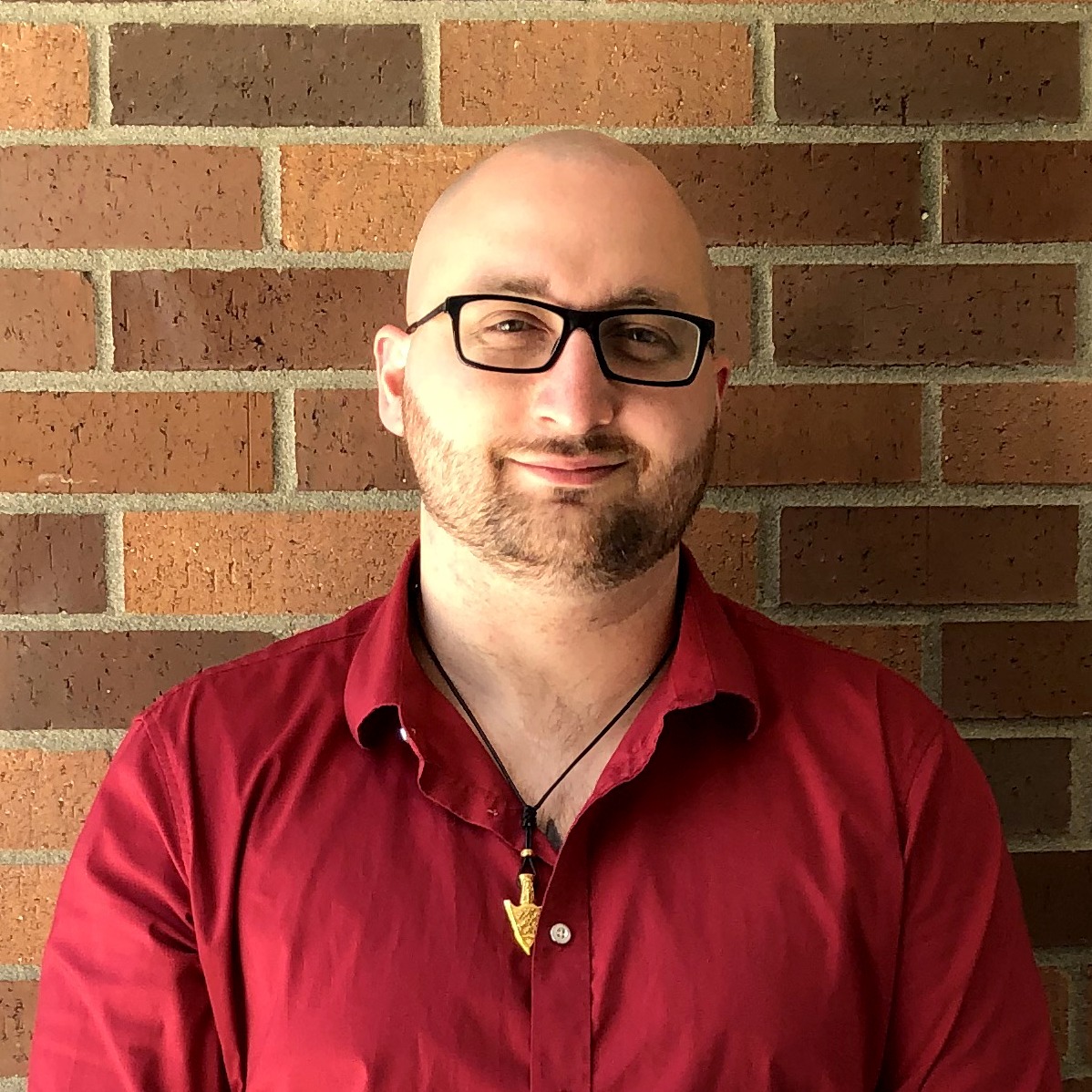Richard Murphy
Richard Murphy is an undergraduate student at Eastern Washington University. His three declared majors are Philosophy, Political Science, and International Affairs with an emphasis on Global Socio-Economic Development. Richard is also pursuing a minor in Spanish. By moving around a lot as a youth, living in urban, suburban, and rural communities in the Pacific Northwest, Richard understands and appreciates the necessity for a pluralistic chorus of voices and perspectives in the discussions for any sort of overarching policy decisions. As the Vice President of the Philosophy Club and the new President of the International Affairs Community at EWU, Richard recognizes the utility of taking interdisciplinary approaches to our most sophisticated and pressing issues of the 21st Century.
As a student ambassador with the People-to-People program, Richard experienced first-hand what traveling to other countries can provide to diversifying one’s exposure, and has translated that into his studies revolving around International Affairs. In 2023, under the mentorship of Professor Tom Hawley, PhD, Richard plans to continue his ongoing research from 2022 on the phenomena of societal internalization of Neoliberalism, and the societal consequences of establishing competitive markets in historically non-marketed realms of our lives.
2023 EWU Faculty Research Mentor: Dr. Tom Hawley
Research Title: Economics Over All: How Neoliberalism Creates Exclusivist Moralities in an Age of Responsibilization
Abstract:
Not much is more heavily debated in the social sciences than the phenomenon of neoliberalism. Philosophers and academics alike, from Michel Foucault in the latter half of the 20th century to David Harvey and Wendy Brown today, have argued that neoliberalism is a complex and nuanced system of self-governmentality that prizes economic rationality above all else. This paper analyzes how neoliberalism necessitates the internalization of specifically neoliberal economic values at the expense of other values that might enable a more nuanced sense of what it means to be human. In particular, neoliberal homo-economicus disables consideration of the human ability to create values that sustain reciprocal moral obligations. I argue that neoliberal rationality exacerbates group distinctions and forestalls moral considerations through a cheapened version of human existence that takes form as neoliberal homo-economicus, and address potential solutions and further implications of more robust ideas of what it means to be human.
Key Words: Neoliberalism, Governmentality, Moral Progress, Inclusivist Moralities, Exclusivist Moralities, Homo-Economicus, Cheapened Natures.
2022 EWU Faculty Research Mentor: Dr. Tom Hawley
Research Title: Neoliberalism’s Effect on Society: An Analysis of the Internalization of Neoliberalism on Freedoms and Democracy
Abstract: Not much is more heavily debated in the realm of social sciences than the phenomenon of Neoliberalism. Philosophers and academics alike, from the lectures by Michel Foucault in the latter half of the 20th century, to the publications of David Harvey and Wendy Brown today, the only constant is that Neoliberalism is a complex and nuanced system of governmentality. This paper seeks to both analyze the phenomenon of Neoliberalism in terms of both its creation and perpetuation, but also how the ideology of Neoliberalism pervades the paradigms of thought in society. This paper argues that the systems of governmentality we call Neoliberalism is an intentional action of the ruling class, that is affecting society in ways that will result in the transformation of our current conceptions of freedom, and the eradication of Democracy itself.

EWU McNair Scholar Kelly Parke Presents her Research at Pacific Rim International Conference on Disability and Diversity
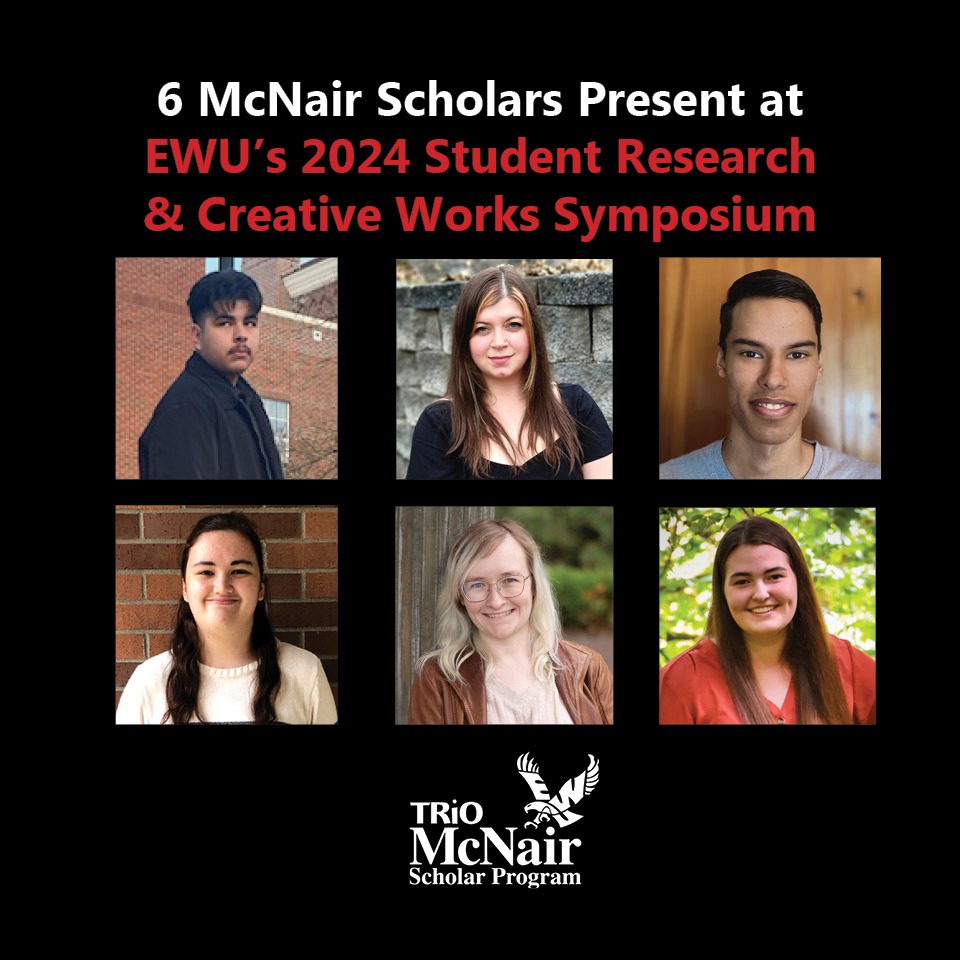
McNair Scholars Present at EWU’s 2024 Student Research & Creative Works Symposium
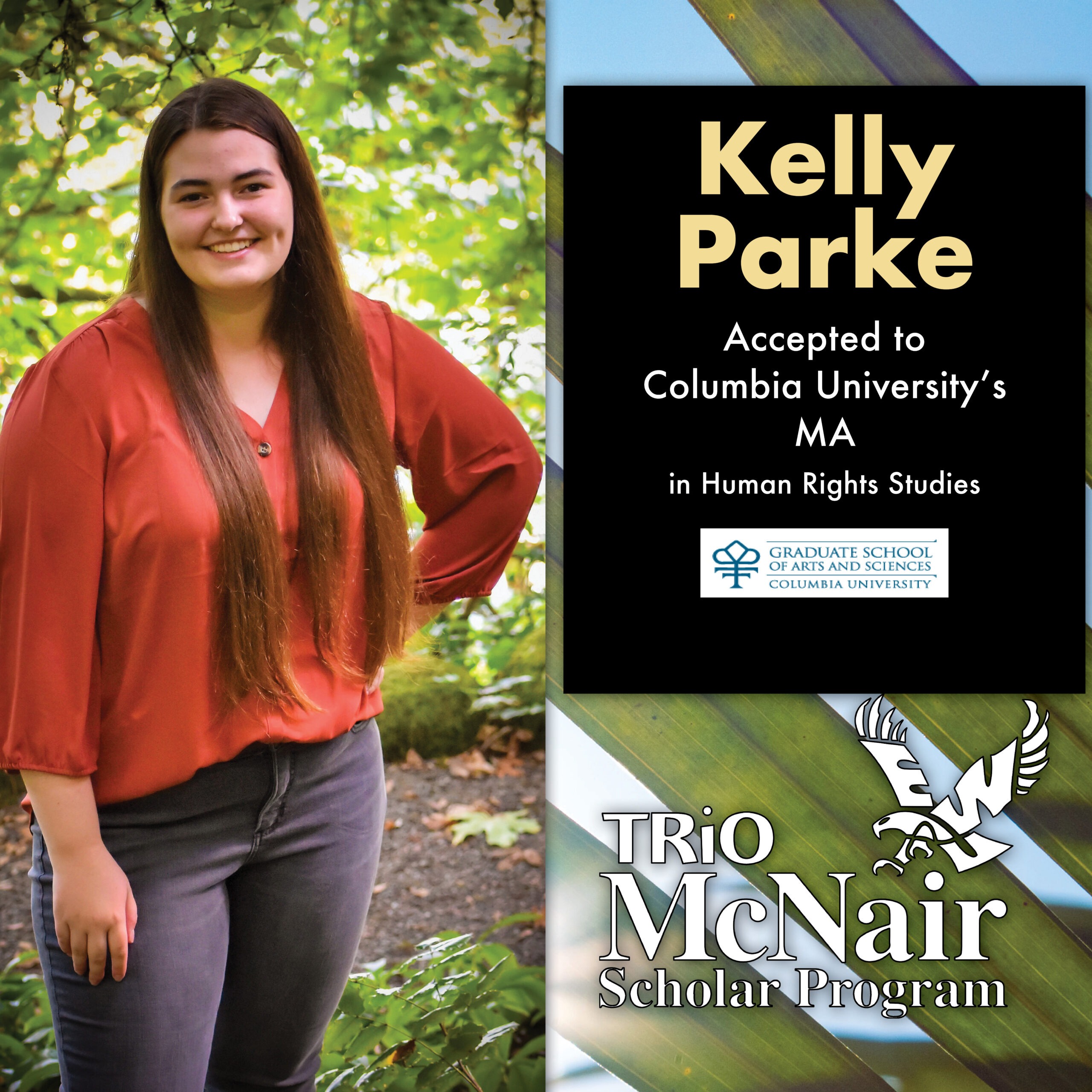
EWU McNair Scholar Kelly Parke Accepted to Columbia University’s Master of Human Rights Studies
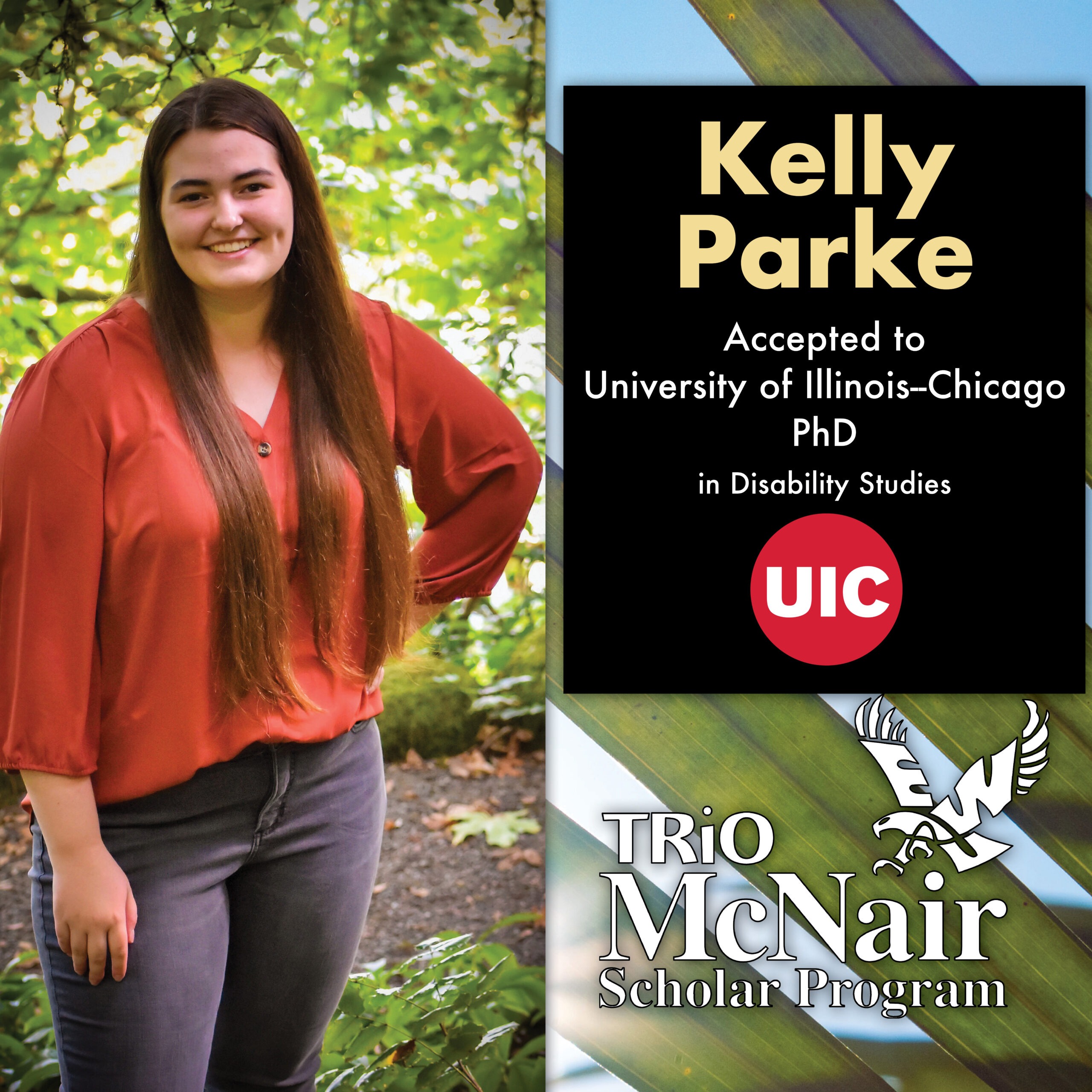
EWU McNair Scholar Kelly Parke Accepted to University of Illinois-Chicago PhD in Disability Studies
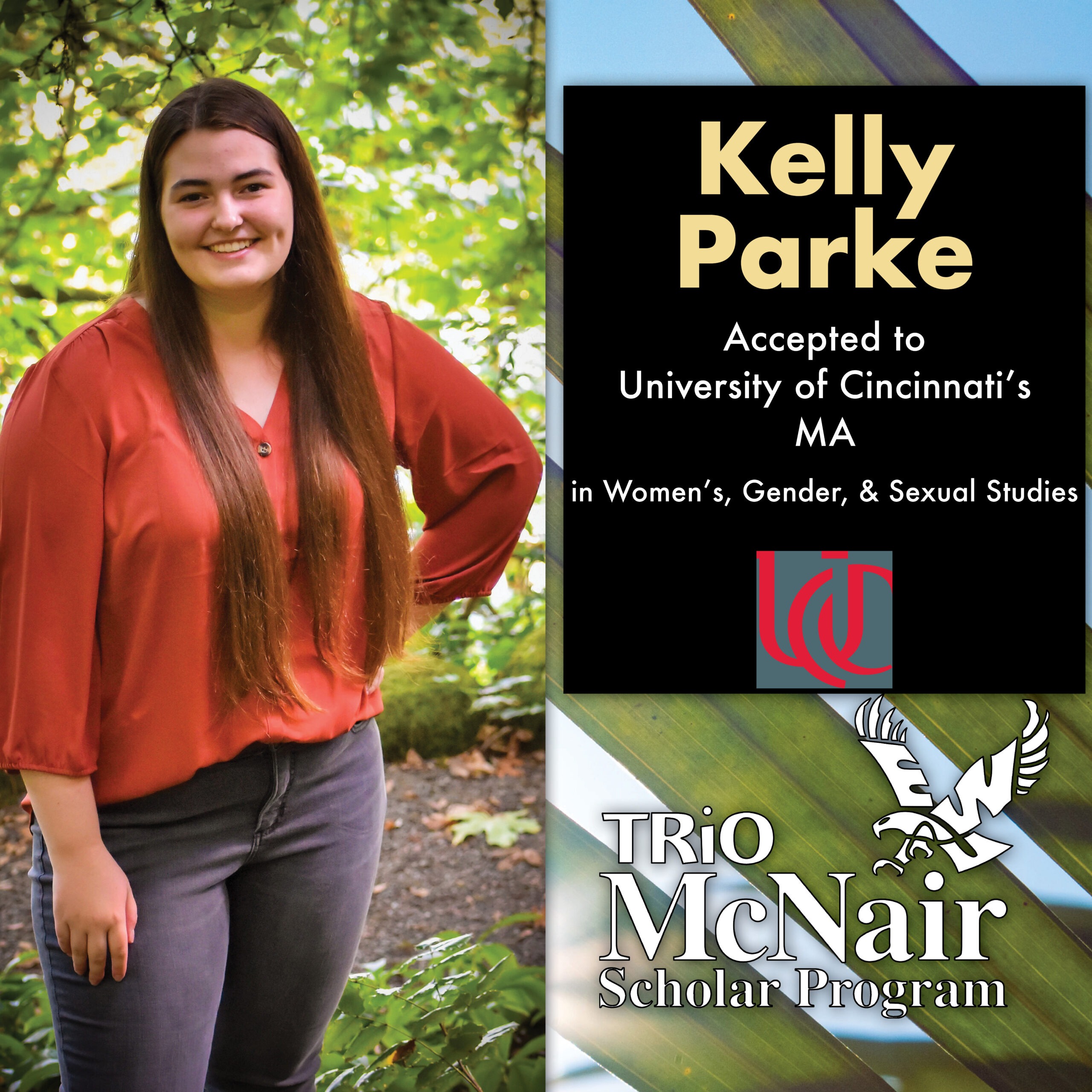
EWU McNair Scholar Kelly Parke Accepted to University of Cincinnati M.A. Program in Women’s, Gender, and Sexuality Studies
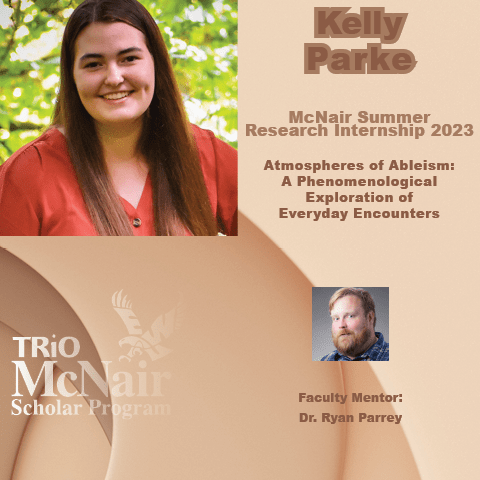
EWU McNair Scholar Kelly Parke Completes McNair Summer Research Internship

EWU McNair Scholars Receive Grants, Awards, Honors
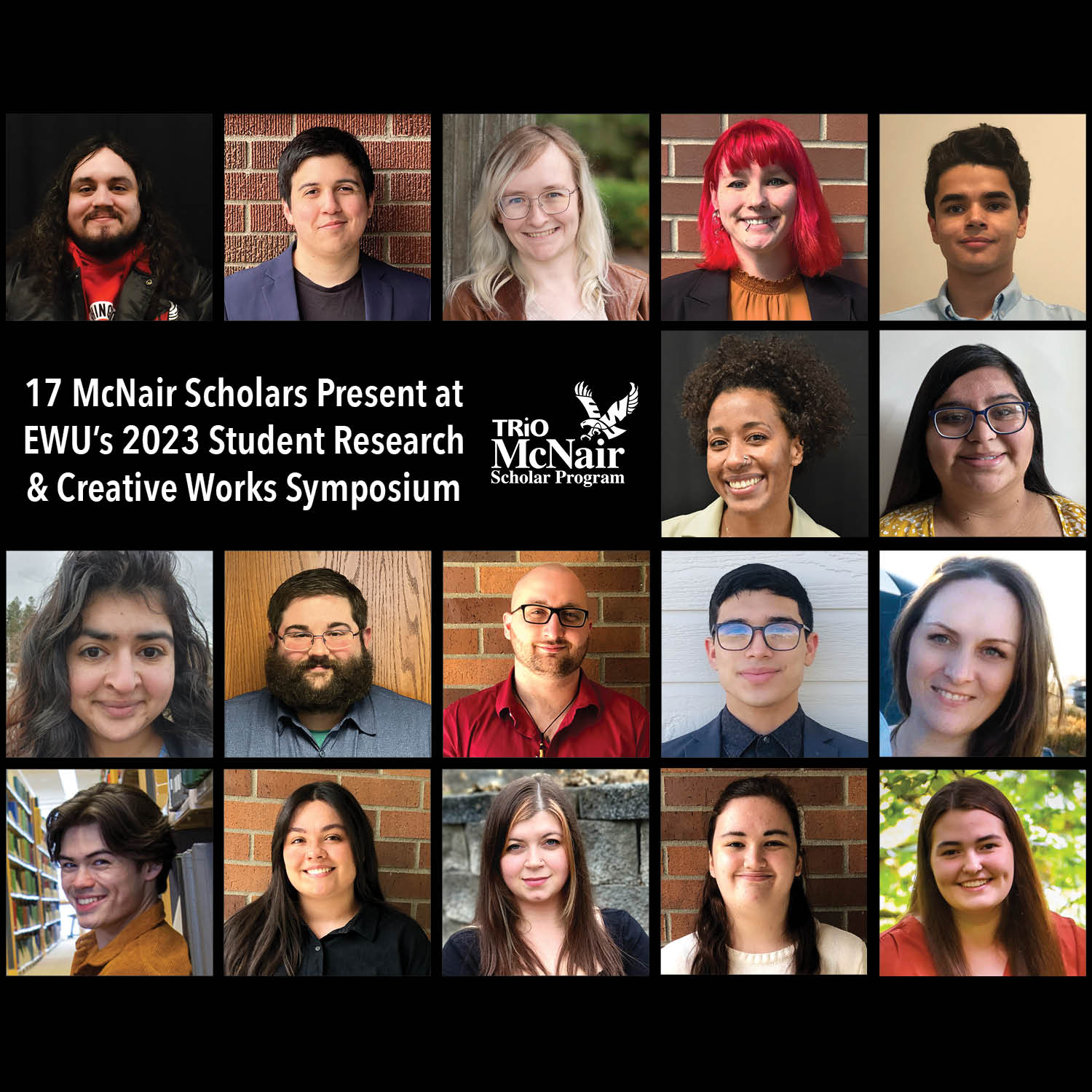
17 McNair Scholars Present at EWU’s 2023 Student Research & Creative Works Symposium

